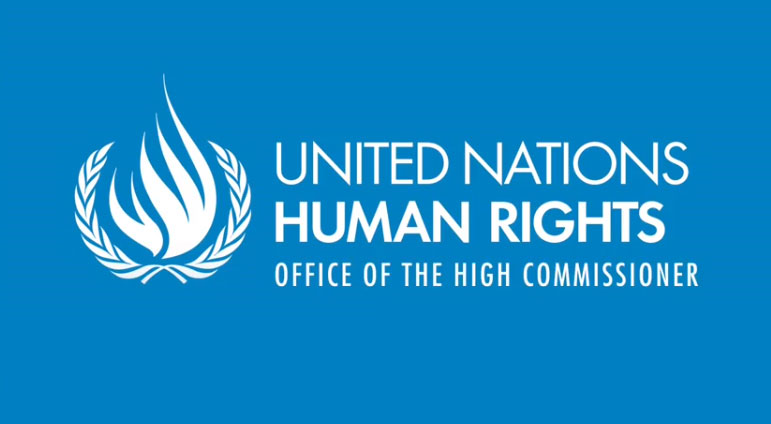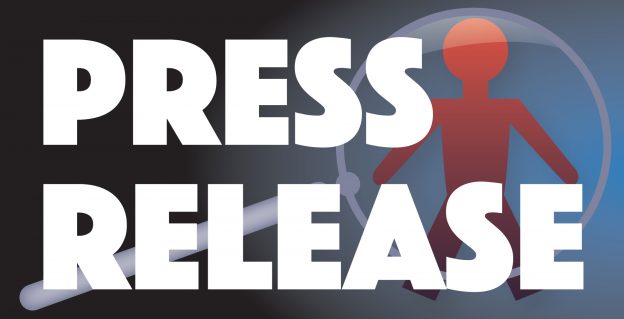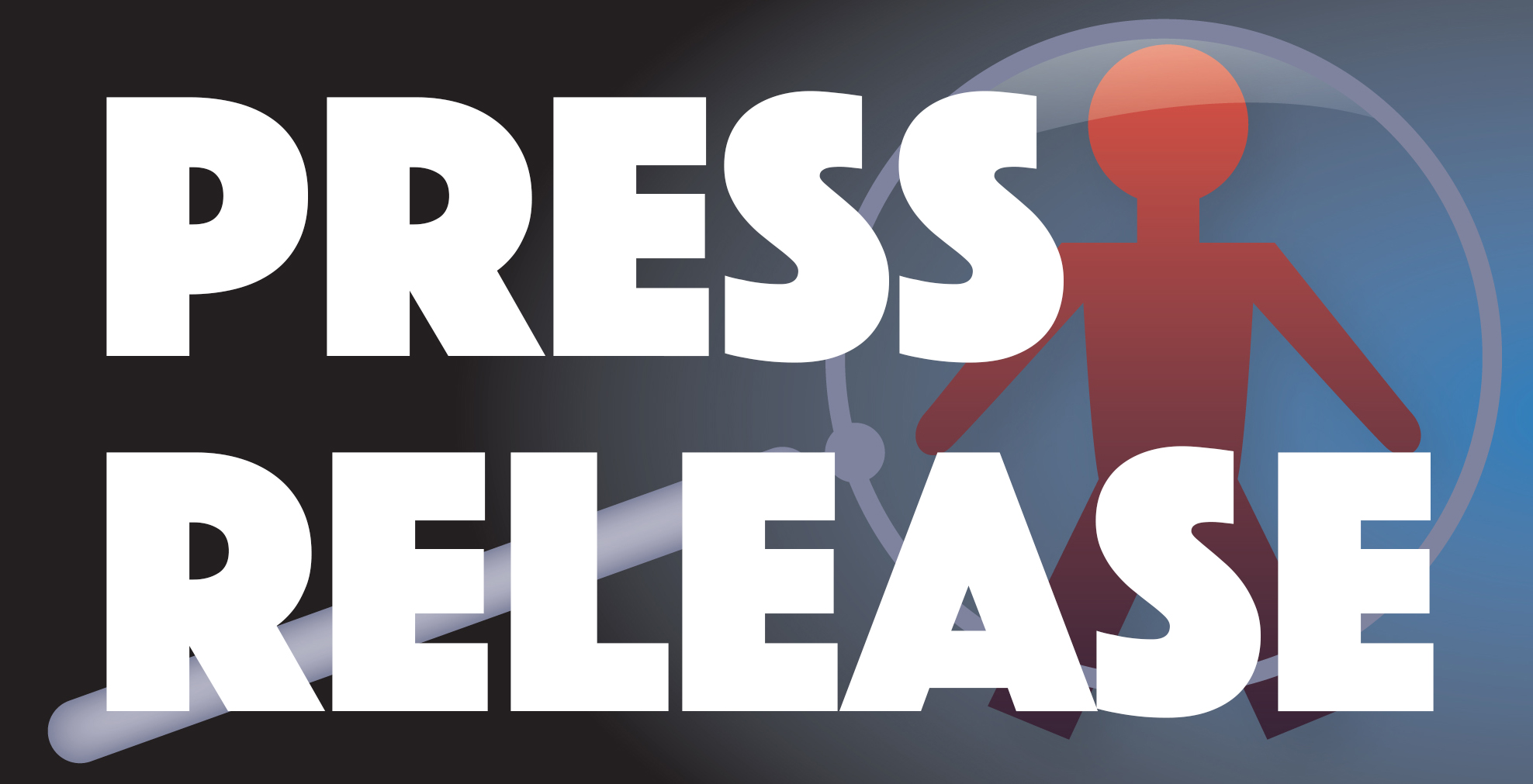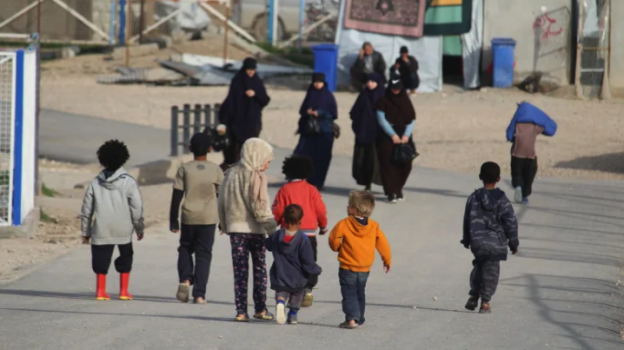Federal government must respect Federal Court ruling and repatriate all Canadians detained in northeast Syria, says Canada’s legal community
Today, an unprecedented open letter was sent to Canadian Prime Minister Justin Trudeau by more than 110 members of Canada’s legal community, calling on his government to honor the recent Federal Court ruling ordering the repatriation of Canadians arbitrarily detained in northeast Syria and work to urgently bring them back to Canada, consistent with the country’s domestic and international law obligations.
The full letter is below, and available as PDF here.
On January 20, 2023, the Federal Court of Canada ordered four of the detained Canadian men returned under section 6(1) of the Charter of Rights and Freedoms, which guarantees Canadian citizens the right to enter Canada. Instead of honoring this decision, though, the federal government is appealing it, and, in doing so, making the troubling argument that by upholding basic rights, the courts are somehow interfering in government affairs.
The letter is being released as the Federal Court of Appeals hears arguments today in the government’s appeal of the initial ruling. The letter is in support of an op-ed published today in the Globe and Mail.
Signatories include:
- Former Minister of Justice and Attorney General of Canada Allan Rock
- Human rights advocates Alex Neve, Sharry Aiken, Faisal Kutty, Yavar Hameed, Azeezah Kanji, Paul Champ, Carmen Cheung Ka-Man and Nicole Filion
- International law experts François Crépeau, Obiora Okafor, Michael Byers and John Packer
- Experts in national security and criminal law Kent Roach and Faisal Bhabha
- Natasha Bakht, Jasminka Kalajdzic, Robert Currie, Ardi Imseis and numerous other law professors from across the country
- Representatives of the Canadian Civil Liberties Association, the Canadian Muslim Lawyers Association, the Arab Canadian Lawyers Association, the National Association of Women and the Law, the Canadian Council of Muslim Women, the BC Civil Liberties Association and the David Asper Centre for Constitutional Rights, among many others.
TAKE ACTION
“The only course of action to address these grave human rights concerns and show that Canada takes its human rights obligations seriously is to repatriate these men as soon as possible. At a time when universal principles such as the right to a fair trial and prohibitions on arbitrary detention, torture and ill treatment are increasingly undermined around the world, this is an opportunity for Canada to lead by example.”
– Allan Rock, former Minister of Justice and Attorney General of Canada
“The courts have recognized that the right of Canadian citizens to return to Canada is fundamental and foundational. Rights without effective remedies are less than useless. Further delay may make effective remedies impossible and the government should respect the court’s findings and repatriate these Canadian citizens.”
– Kent Roach, Professor of Law, University of Toronto Faculty of Law
“Repatriating Canadians held in life-threatening, indefinite detention in northeast Syria is an important step in addressing systemic Islamophobia. The federal government has claimed an interest in rectifying this problem. They must now act.”
– Natasha Bakht, Professor, Shirley Greenberg Chair for Women and the Legal Profession, University of Ottawa
“Over fifteen years ago, the Arar and Iacobucci Inquiries confirmed that Canadian agencies had failed Maher Arar, Ahmad Elmaati, Abdullah Almalki and Muayyed Nureddin. Canada violated its own policies and legal duties and thus contributed to the torture of these four Canadian citizens by Syrian officials. The current government’s refusal to repatriate other Muslim Canadian men is a continuation of a policy under which some individuals’ citizenship counts for less than others’. Canada must repatriate the men, as other countries have done with their own citizens, and show that it has learned from the grievous mistakes made in the so-called war on terror.”
– Jasminka Kalajdzic, Associate Professor at Windsor Law, and counsel at the Iacobucci Inquiry
“‘A Canadian is a Canadian is a Canadian.’ Justin Trudeau said that, in July 2015. We’re just asking for consistency.”
– Michael Byers, Canada Research Chair in Global Politics and International Law, University of British Columbia
“As Justice Henry Brown stated in his decision, every day the Canadian government delays, it puts the lives of these Canadians in danger. The federal government’s refusal to respect the decision of the courts and to leave these Canadians under indefinite detention in overcrowded prisons and brutal detention camps is not just unacceptable and inhumane, it is a violation of the Canadian Charter of Rights and Freedoms.”
– Tim McSorley, national coordinator of the ICLMG
FULL LETTER:
March 27, 2023
The Right Honourable Justin Trudeau, P.C., M.P.
Prime Minister of Canada
Office of the Prime Minister
80 Wellington Street
Ottawa, ON
K1A 0A2
via email
RE: Urgent repatriation of Canadians detained in northeast Syria
Prime Minister:
As members of the legal community, we write to express our serious concern regarding the Canadian government’s continuing refusal to repatriate all Canadians detained in camps and prisons in northeast Syria[1] – urgent repatriation being “the only international law-compliant response,” in the assessment of the UN Special Rapporteur on counter-terrorism and human rights.[2]
Indeed, on January 20, the Federal Court of Canada ordered several of the detained Canadian men returned under section 6(1) of the Charter of Rights and Freedoms, which guarantees Canadian citizens the right to enter Canada: a protection for all Canadians against banishment and the concomitant expulsion from the “right to have rights.”[3] Yet instead of honouring this decision that gives meaningful life to Charter provisions, the federal government is appealing it. In doing so, it is not only prolonging the dire and life-threatening conditions of the detainees, but also putting forward the troubling legal argument that the Court, in performing its essential function of upholding basic rights, is impermissibly “interfering in the exercise of Crown prerogative over matters of foreign affairs.”
This is particularly disturbing given the scale of rights violations involved. As described by the Federal Court and documented by UN experts and international human rights organizations, the deplorable conditions and abuses experienced by Canadian and other detainees in northeast Syria include: long-term, extrajudicial, indefinite, and in many cases incommunicado detention without the possibility of trial;[4] torture and ill-treatment;[5] life-threatening denial of food, water, sanitation, shelter, and medical treatment;[6] failure to provide education;[7] sexual violence and exploitation, particularly against women and children;[8] extreme physical danger for children, at least 371 of whom died in just one of the camps (al-Hol) in 2019 alone, including from malnutrition, dehydration, tent fires, shooting, stabbing, and drowning in open sewage pits;[9] and child separation,[10] including the mass “culling, separation and warehousing of adolescent boys from their mothers” in “detention facilities [where they] endure untreated war injuries, missing limbs, and severe trauma.”[11] Such treatment violates international and Canadian constitutional provisions protecting the rights to life, liberty, security of the person, fair trials, equality, and of children; and prohibiting secret and arbitrary detention, enforced disappearances, collective punishment, and torture and ill-treatment.[12]
Thirty-five countries have done what the Federal Court has asked the Federal government to do: repatriate its citizens.[13] States that have repatriated their citizens to date include Australia, Belgium, France, Germany, and the United States.[14] More than 6,000 detainees across 35 countries have been repatriated.[15] Commending Kyrgyzstan’s decision to repatriate 59 detainees from the camps this February, the US Department of State emphasized: “Repatriation is the only durable solution to this urgent humanitarian and security situation […] We urge all governments to follow Kyrgyzstan’s example and repatriate their nationals.”[16]
Calls for repatriation have now been issued by US President Joe Biden, the International Committee of the Red Cross, 22 United Nations experts, the Canadian House of Commons Standing Committee on Foreign Affairs and International Development, and the Kurdish authorities administering the camps and prisons.[17] The conditions for release outlined by Kurdish authorities could not be expressed more simply: that Canada write a letter requesting the detainees’ release, that Canada ensure travel documents are ready for issue, and that a Canadian representative appear in northeast Syria for a handover signing. The United States military has pledged to provide the security and resources necessary to fly detainees home.
The Canadian government’s highly restrictive approach to repatriation is incompatible with international and constitutional legal norms. For example, Global Affairs Canada’s “Policy Framework [for repatriation] appears drafted to exclude the Canadian men [… in which] case the Policy Framework as presently advised could not withstand subsection 6(1) Charter scrutiny,” as the Federal Court concluded.[18] Moreover, the refusal to admit detained non-Canadian mothers with their Canadian children effectively mandates forcible child-parental separation, in contravention of the Convention on the Rights of the Child.[19]
Canada’s failure to repatriate perpetuates a pattern of Canadian governmental complicity with the overseas torture, arbitrary detention, and forced exile of Muslim Canadians, as recorded in the two official inquiries on the cases of Maher Arar, Ahmad Abou El-Maati, Abdullah Almalki, and Muayyed Nureddin,[20] and multiple legal complaints.[21]
Instead of advancing legal interpretations that would vitiate fundamental rights protections, we call on the Canadian government to honour the Federal Court’s repatriation order; to work to urgently bring back all Canadian detainees and, with respect to detained children, any non-Canadian caregiving parents as well; and to finally address the underlying deficiencies in Canadian policies – many of them identified in unimplemented recommendations from the 2006 Arar Inquiry[22] – that have led to this deplorable situation, to prevent any future recurrence.
We urge this course of action both to address the grave human rights concerns in these pressing cases, and to convey a strong and much-needed message that Canada does indeed take its human rights obligations seriously in a world and at a time when those universal principles are increasingly undermined.
Signed by:
- Allan Rock, former Minister of Justice and Attorney General of Canada, former Ambassador to the United Nations and President Emeritus of the University of Ottawa
- Sharry Aiken, Faculty of Law, Queen’s University
- Paul Champ, constitutional lawyer
- Kent Roach, Professor of Law, University of Toronto Faculty of Law
- Carmen Cheung Ka-man, Senior Fellow, Munk School of Global Affairs and Public Policy, University of Toronto
- Alex Neve, Adjunct Professor, International Human Rights Law, University of Ottawa
- Natasha Bakht, Professor, Shirley Greenberg Chair for Women and the Legal Profession, University of Ottawa
- Noa Mendelsohn Aviv, Executive Director & General Counsel, Canadian Civil Liberties Association
- Husein Panju, Chair of Canadian Muslim Lawyers Association
- Michael Byers, Canada Research Chair in Global Politics and International Law, University of British Columbia
- Michael Lynk, Former United Nations Human Rights Special Rapporteur
- John Packer, Director of the Human Rights Research and Education Centre, University of Ottawa
- Obiora Okafor, Professor of International Law, Johns Hopkins University, Washington DC
- Aviva Basman, President, Canadian Association of Refugee Lawyers
- Tiffany Butler, Executive Director, National Association of Women and the Law
- Tim McSorley, national coordinator, International Civil Liberties Monitoring Group
- Yavar Hameed, human rights lawyer
- Azeezah Kanji, legal academic and journalist
- Nicholas Pope, lawyer, Hameed Law
- Irina Ceric, Assistant Professor, University of Windsor Faculty of Law
- Jasminka Kalajdzic, Associate Professor
- Sarah Beamish, lawyer
- Dr. Ardi Imseis, Faculty of Law, Queen’s University
- Constance MacIntosh, Professor of Law, Schulich School Of Law, Dalhousie University
- Faisal Bhabha, Associate Professor, Osgoode Hall Law School
- Dania Majid, Arab Canadian Lawyers Association
- André Capretti, lawyer
- Dr. Ashwini Vasanthakumar, Associate Professor, Queen’s Law School
- Faisal Kutty, Associate Professor of Laws at Southwestern Law School and Affiliate Faculty at Rutger University’s Center for Security, Race and Rights
- Robert J. Currie, Professor of Law, Schulich School of Law, Dalhousie University
- Michael Bossin, lawyer, sessional professor, Queen’s University, University of Ottawa
- François Crépeau, Professor of International Law, McGill University
- Matthew Behrens, Legal Researcher, Stop Canadian Involvement in Torture
- Suzanne Larose, Paralegal / Community Legal Caseworker at CLSO
- Laïla Demirdache, Staff Lawyer, Community Legal Services of Ottawa & Sessional Professor, University of Ottawa
- Catherine Morris, lawyer (non-practicing)
- Christelle Azzi, lawyer
- Charis Kamphuis, Associate Professor, Faculty of Law, Thompson Rivers University
- Xan Dagenais, Research Coordinator, International Civil Liberties Monitoring Group
- Dr. Kjell Anderson, Director, Master of Human Rights program University of Manitoba
- Aditya Rao, lawyer
- Laura MacLean, Staff Lawyer, Community Legal Services of Ottawa
- Esther Dionne Desbiens, lawyer
- Fatma Alobeid, JD Candidate, University of Ottawa
- Professor Martha Jackman, Faculty of Law, University of Ottawa
- Raphael Vagliano, international human rights lawyer
- Fawad Siddiqui, lawyer
- Aadil Nathani, lawyer
- Élaine Simon, staff lawyer at Community Legal Services of Ottawa
- Mahmoud Khodr, financial controller
- Justin Safayeni, lawyer
- Mudasir Marfatia, General Counsel and Vice President, Legal at First Ontario
- Del Atwood, retired judge
- Imran Abdool, Lecturer, University of Western Ontario
- Lex Gill, Lawyer and Course Lecturer, Faculty of Law, McGill University
- Sujith Xavier, Associate Professor University of Windsor Faculty of Law
- Pearl Eliadis, human rights lawyer and associate professor (professional), McGill University
- Nicole Filion, lawyer, former coordinator, Ligue des droits et libertés
- Mohamed El Rashidy, lawyer
- Christopher Campbell-Duruflé, Assistant Professor, Lincoln Alexander School of Law, Toronto Metropolitan University
- Hilary Evans Cameron, Assistant Professor, Lincoln Alexander School of Law
- Kareem Ibrahim, lawyer
- Naseer (Irfan) Syed, lawyer
- Alastair Clarke, immigration lawyer based in Winnipeg
- Basmah Osman, Canadian Muslim Lawyers Association
- Mary Boyce, lawyer
- Karina Thompson, lawyer
- Amina Younas, corporate lawyer, Vancouver
- Rebeka Lauks, lawyer
- Mustafa Khan, lawyer
- Omair Jafrani, lawyer, McCarthy Tetrault
- Aziza Hirsi, Canadian Association of Somali Lawyers
- Denis Barrette, lawyer and activist, Ligue des droits et libertés
- Aaqib Raza, Canadian Muslim Lawyers Association
- Rabiat Akande, Osgoode Hall Law School
- Adrian A. Smith, Associate Professor, Osgoode Hall Law School
- Mahvish Mian, Canadian Muslim Lawyers Association
- Andrew Brouwer, lawyer
- Kristin Marshall, lawyer and educator
- Daniel Sheppard, lawyer
- Sonia Lawrence, Associate Professor, Osgoode Hall Law School
- Adriel Weaver, lawyer
- Nuzhat Jafri, Canadian Council of Muslim Women
- Julia Sande, lawyer
- Roxana Parsa, lawyer
- Aleem Bharmal, KC, human rights lawyer
- Jacqueline Bonisteel, immigration lawyer
- Meagan Johnston, lawyer
- Susan B. Boyd, Professor Emerita, Allard School of Law, University of British Columbia
- Mohammad Fadel, Professor of Law, University of Toronto Faculty of Law
- Cheryl Milne, Executive Director, David Asper Centre for Constitutional Rights
- Asad Kiyani, Assistant Professor, Faculty of Law, University of Victoria
- Suzanne Zaccour, lawyer and researcher
- Margaret Keys, lawyer
- Emma Wilson, lawyer
- Eileen Myrdahl, lawyer
- Kyong-ae Kim, retired lawyer
- Safiyya Ahmad, Articling Student, BC Civil Liberties Association
- Kat Owens, lawyer
- Ga Grant, human rights lawyer
- Meghan McDermott, Policy Director, BC Civil Liberties Association
- Mehreen Mulla, lawyer
- Coral Lyster, lawyer
- Dan Shoom, lawyer
- Brenda McPhail, Director, Privacy Technology & Surveillance Program, Canadian Civil Liberties Association
- Cara Zwibel, Director, Fundamental Freedoms Program, Canadian Civil Liberties Association
- Makaela Peters, lawyer
- Sherry MacLeod, lawyer
- Karen Coulter, retired lawyer
- Kristina Cooke, lawyer
- Omar Chu, Community Legal Worker
- Ellen Campbell, lawyer
- Asiya Hirji, lawyer
- Ibrahim Danial, Director, Downtown Muslim Professional Network
[1] https://globaljustice.queenslaw.ca/news/human-rights-and-citizenship-abandoned-in-ne-syria-a-special-issue-of-the-global-justice-journal.
[2] https://www.ohchr.org/en/special-procedures/sr-terrorism/return-and-repatriation-foreign-fighters-and-their-families.
[3] https://decisions.fct-cf.gc.ca/fc-cf/decisions/en/item/522819/index.do?; https://link.springer.com/chapter/10.1007/978-3-319-92719-0_31.
[4] https://www.hrw.org/report/2020/06/29/bring-me-back-canada/plight-canadians-held-northeast-syria-alleged-isis-links; https://www.justsecurity.org/85049/repatriating-alleged-isis-linked-men-from-northeast-syria-the-start-of-judicial-responses-to-the-political-stalemate/.
[5] https://www.hrw.org/report/2020/06/29/bring-me-back-canada/plight-canadians-held-northeast-syria-alleged-isis-links; https://stj-sy.org/en/detainees-tortured-and-maltreated/.
[6] https://www.doctorswithoutborders.org/sites/default/files/documents/MSB141137%28High%29.pdf.
[7] https://www.savethechildren.net/news/children-abandoned-their-governments-are-%E2%80%98wasting-away%E2%80%99-syrian-camps-%E2%80%93-save-children.
[8] https://www.rightsandsecurity.org/assets/downloads/Europes-guantanamo-THE_REPORT.pdf, https://www.doctorswithoutborders.org/sites/default/files/documents/MSB141137%28High%29.pdf, https://reliefweb.int/report/syrian-arab-republic/assistant-secretary-general-humanitarian-affairs-and-deputy-emergency-relief-coordinator-ms-joyce-msuya-briefing-security-council-humanitarian-situation-syria-29-august-2022, https://reliefweb.int/report/syrian-arab-republic/syria-un-human-rights-chief-condemns-brutal-killing-two-girls-alarmed-sharp-rise-violence-al-hol-camp, https://syria.unfpa.org/en/news/without-rights-without-options-birthing-without-skilled-birth-attendant-al-hol-camp.
[9] https://www.hrw.org/news/2023/01/27/revictimizing-victims-children-unlawfully-detained-northeast-syria.
[10] https://www.ohchr.org/en/press-releases/2023/02/syria-un-experts-alarmed-reports-boys-taken-camp-roj-de-facto-authorities.
[11] https://www.ohchr.org/sites/default/files/Documents/Issues/Terrorism/SR/UNSRCT_Position_human-rights-of-boys-adolescents-2021_final.pdf.
[12] Charter of Rights and Freedoms, sections 7, 9, 12, and 15; International Covenant on Civil and Political Rights, articles 2, 6, 7, 9, 10, 14, 24; International Covenant on Economic, Social, and Cultural Rights, articles 11, 13; International Convention for the Protection of All Persons from Enforced Disappearance; Convention against Torture and Other Cruel, Inhuman or Degrading Treatment or Punishment, https://tbinternet.ohchr.org/_layouts/15/treatybodyexternal/Download.aspx?symbolno=CAT%2FC%2F75%2FD%2F922%2F2019&Lang=en (decision by the UN Committee Against Torture finding France in violation of the Convention for failing to take effective measures to protect its nationals in the camps); Convention on the Rights of the Child; Rome Statute of the International Criminal Court, article 7; https://casebook.icrc.org/a_to_z/glossary/collective-punishments; https://www.hrw.org/news/2023/01/27/revictimizing-victims-children-unlawfully-detained-northeast-syria; https://www.justsecurity.org/85049/repatriating-alleged-isis-linked-men-from-northeast-syria-the-start-of-judicial-responses-to-the-political-stalemate/.
[13] https://www.hrw.org/news/2023/01/27/revictimizing-victims-children-unlawfully-detained-northeast-syria.
[14] https://www.rightsandsecurity.org/action/resources/global-repatriations-tracker.
[15] https://www.hrw.org/news/2023/01/27/revictimizing-victims-children-unlawfully-detained-northeast-syria.
[16] https://www.state.gov/u-s-welcomes-kyrgyzstans-repatriation-of-nationals-from-northeast-syria/.
[17] https://www.thetimes.co.uk/article/joe-biden-urges-western-allies-to-bring-back-isis-families-held-in-syria-sng77cngg; https://www.icrc.org/en/document/remarks-fabrizio-carboni-icrc-near-and-middle-east-regional-director-record; https://www.ohchr.org/en/press-releases/2021/02/syria-un-experts-urge-57-states-repatriate-women-and-children-squalid-camps; https://www.ohchr.org/en/press-releases/2023/02/syria-un-experts-alarmed-reports-boys-taken-camp-roj-de-facto-authorities; https://www.ourcommons.ca/DocumentViewer/en/43-2/FAAE/report-7/;
[18] https://decisions.fct-cf.gc.ca/fc-cf/decisions/en/item/522819/index.do?, para 190.
[19] Article 9, https://www.ohchr.org/en/instruments-mechanisms/instruments/convention-rights-child.
[20] https://publications.gc.ca/site/eng/295791/publication.html; https://secretlaw.omeka.net/items/show/74.
[21] For example, relating to the cases of Abousfian Abdelrazik (https://decisions.fct-cf.gc.ca/fc-cf/decisions/en/item/56734/index.do), Omar Khadr (https://scc-csc.lexum.com/scc-csc/scc-csc/en/item/4638/index.do), and Mohamedou Slahi (https://files.constantcontact.com/3ffcf3a6301/2c1019a8-43eb-487e-b54d-6e5f7be42aab.pdf).
[22] https://publications.gc.ca/site/eng/295791/publication.html.
Since you’re here…
… we have a small favour to ask. Here at ICLMG, we are working very hard to protect and promote human rights and civil liberties in the context of the so-called “war on terror” in Canada. We do not receive any financial support from any federal, provincial or municipal governments or political parties. You can become our patron on Patreon and get rewards in exchange for your support. You can give as little as $1/month (that’s only $12/year!) and you can unsubscribe at any time. Any donations will go a long way to support our work. You can also make a one-time donation or donate monthly via Paypal by clicking on the button below. On the fence about giving? Check out our Achievements and Gains since we were created in 2002. Thank you for your generosity! You can also make a one-time donation or donate monthly via Paypal by clicking on the button below. On the fence about giving? Check out our Achievements and Gains since we were created in 2002. Thank you for your generosity!

|





 OTTAWA, March 27, 2023 – Today’s report from the Office of the Taxpayers’ Ombudsperson into systemic racism and bias in the CRA’s treatment of Canadian charities, and particularly those which are Muslim-led, demonstrates the urgent need for transparency, accountability and action to address this problem, according to the International Civil Liberties Monitoring Group (ICLMG), a Canadian coalition focused on the impact of anti-terrorism activities on civil liberties in Canada.
OTTAWA, March 27, 2023 – Today’s report from the Office of the Taxpayers’ Ombudsperson into systemic racism and bias in the CRA’s treatment of Canadian charities, and particularly those which are Muslim-led, demonstrates the urgent need for transparency, accountability and action to address this problem, according to the International Civil Liberties Monitoring Group (ICLMG), a Canadian coalition focused on the impact of anti-terrorism activities on civil liberties in Canada.